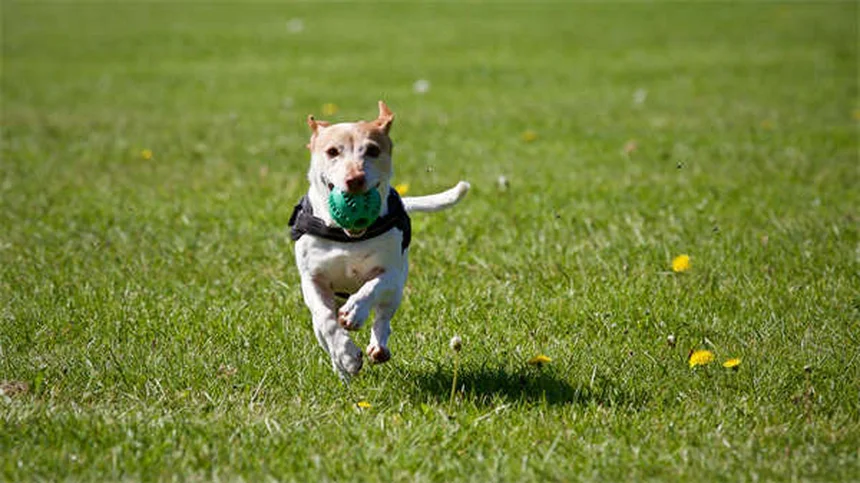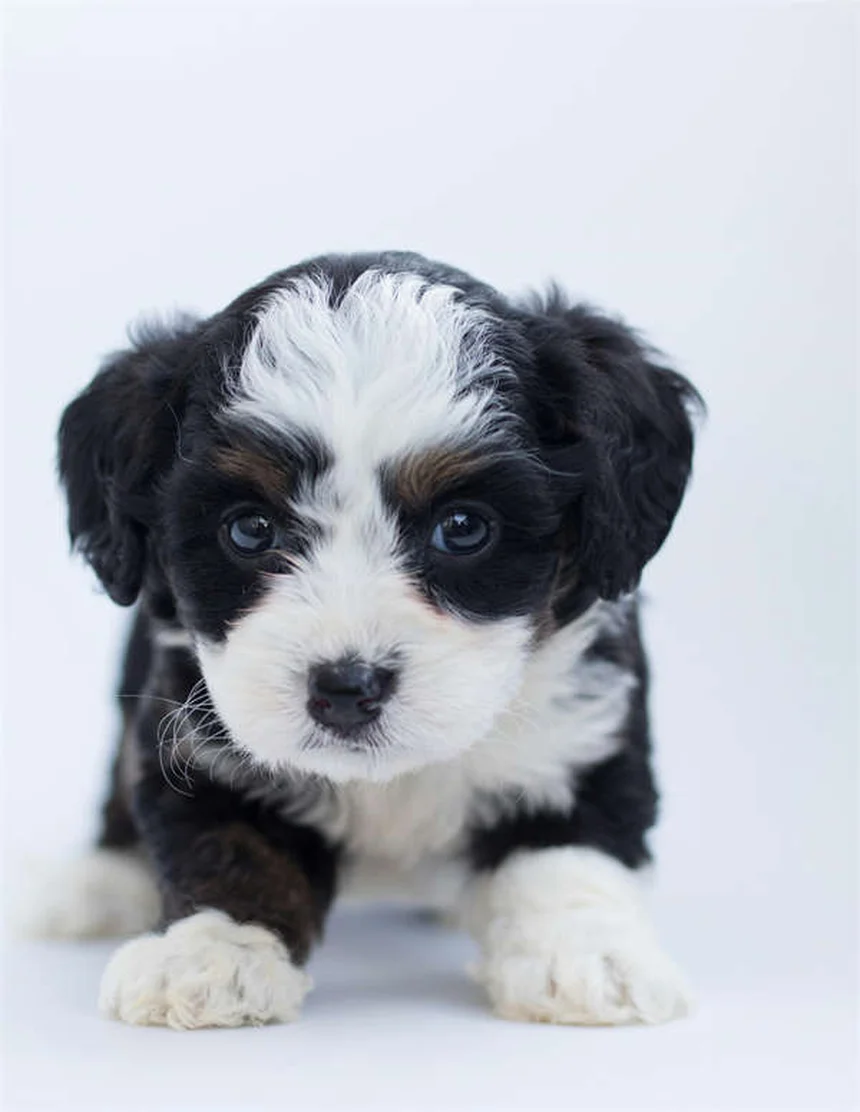Why Is My Cat Always Hungry? 5 Surprising Reasons & Solutions
Advertisement
Why is my cat always hungry? The answer is: your cat's constant hunger could signal anything from boredom to serious health issues. We've all been there - your feline friend acts like they're starving despite just being fed. As a vet tech for over a decade, I can tell you this is one of the most common concerns pet parents bring to our clinic.The truth is, while some cats are naturally food-motivated, excessive hunger often indicates underlying problems. In this guide, we'll break down the 5 most common reasons your cat won't stop begging for food and give you practical solutions that actually work. Whether it's hyperthyroidism in older cats or just plain boredom, you'll learn exactly what to look for and when to call your vet.
E.g. :Senior Dog Care: 5 Essential Tips from a Veterinarian
Advertisement
- 1、Understanding Your Cat's Hunger Signals
- 2、The Real Reasons Behind Constant Hunger
- 3、When to Call the Vet (And When to Wait)
- 4、Diagnostic Tests Your Vet Might Recommend
- 5、Treatment Options That Actually Work
- 6、Prevention Is Better Than Treatment
- 7、Answering Your Top Cat Hunger Questions
- 8、Beyond the Food Bowl: Understanding Your Cat's True Needs
- 9、Environmental Factors Affecting Appetite
- 10、Decoding Your Cat's Eating Timeline
- 11、Special Cases: Pregnant, Nursing, and Special Needs Cats
- 12、The Psychology of Feeding: How We Shape Our Cats' Habits
- 13、Innovative Feeding Solutions
- 14、FAQs
Understanding Your Cat's Hunger Signals
Is Your Cat Really Hungry or Just Bored?
You know that look - the one where your cat stares at you like they haven't eaten in weeks? Before you reach for the treats, let's figure out what's really going on. Many cats confuse boredom with hunger, just like we might snack while watching TV. But here's the thing: obesity affects over 50% of cats in the U.S., and free-feeding is a major contributor.
Think about your cat's daily routine. Are they getting enough playtime? Do they have interesting toys? I've seen cases where simply adding a puzzle feeder reduced food-seeking behavior by 70%! Try this simple test: when your cat begs for food, offer play instead. If they lose interest quickly, you're probably dealing with boredom, not hunger.
Warning Signs You Shouldn't Ignore
Now, let's talk about the red flags. Rapid weight changes combined with increased appetite always warrant a vet visit. Here's a quick comparison of normal vs. concerning behaviors:
| Behavior | Normal | Concerning |
|---|---|---|
| Mealtime excitement | Runs to bowl when hearing food | Scavenges in trash between meals |
| Eating speed | Finishes meal in 5-10 minutes | Gulps food instantly |
| Weight changes | Stable within 1-2 pounds | Losing/gaining rapidly |
The Real Reasons Behind Constant Hunger
 Photos provided by pixabay
Photos provided by pixabay
Medical Conditions That Increase Appetite
Did you know that hyperthyroidism affects about 10% of senior cats? This condition revs up their metabolism like a car stuck in high gear. I remember treating Mr. Whiskers, a 12-year-old tabby who lost 3 pounds despite eating double his normal portions. Blood tests revealed his thyroid levels were through the roof!
Other medical causes include:- Diabetes (watch for excessive thirst)- Intestinal parasites (especially in outdoor cats)- Certain cancers (they burn tons of calories)
Psychological Factors You Can Fix
Here's a question: When was the last time you played with your cat for 15 straight minutes? Many "hungry" cats are actually starved for attention. Try these simple fixes:1. Schedule two 10-minute play sessions daily2. Rotate toys weekly to prevent boredom3. Install window perches for bird-watching4. Use food puzzles instead of bowls
When to Call the Vet (And When to Wait)
Emergency Situations
If your cat shows any of these signs with increased hunger, call your vet immediately:- Vomiting after eating- Drinking from unusual places (toilet, sinks)- Sudden weakness or lethargy- Straining in the litter box
 Photos provided by pixabay
Photos provided by pixabay
Medical Conditions That Increase Appetite
For cats who just seem extra snacky but otherwise normal, try these steps for 3-5 days before scheduling a checkup:1. Measure all food portions2. Track actual consumption3. Note any weight changes4. Increase interactive play
Diagnostic Tests Your Vet Might Recommend
Basic Bloodwork Breakdown
Ever wonder what those blood tests actually check? Here's the inside scoop:- CBC (Complete Blood Count): Checks for anemia/infection- Chemistry panel: Evaluates organ function- T4 test: Measures thyroid levels- Fructosamine: Assesses long-term blood sugar
Advanced Testing Options
For tricky cases, your vet might suggest:- Abdominal ultrasound (like a sonogram for organs)- Urine culture (checks for hidden infections)- Special blood tests (pancreas function, etc.)
Treatment Options That Actually Work
 Photos provided by pixabay
Photos provided by pixabay
Medical Conditions That Increase Appetite
For hyperthyroid cats, methimazole works wonders - either as pills or ear gel. Diabetic cats often do well with insulin injections (don't worry, the needles are tiny!). I taught an 80-year-old client to give insulin, and she said it was easier than threading a needle!
Environmental Enrichment
Transform your home into a feline paradise with:- Cat trees near windows- Hiding spots with cardboard boxes- Food-dispensing toys- Scheduled mealtimes (not free-feeding)
Prevention Is Better Than Treatment
Daily Habits for Healthy Cats
Start these practices today:1. Weigh your cat monthly (use a baby scale)2. Keep food portions consistent3. Provide fresh water in multiple locations4. Clean litter boxes daily
Must-Have Vet Visits
Don't skip these appointments:- Annual exams for young cats- Semi-annual for seniors- Immediate visits for sudden changes- Follow-ups for chronic conditions
Answering Your Top Cat Hunger Questions
Why Does My Cat Wake Me for Food?
Simple - because it works! Cats train us better than we train them. Try an automatic feeder for morning meals to save your sleep.
Are Some Breeds More Food-Obsessed?
Absolutely! Siamese and related breeds tend to be more vocal about food. But any cat can develop food fixation if allowed.
Remember, understanding your cat's hunger is about observing patterns. Keep notes, stay consistent with meals, and when in doubt - call your vet. Your feline friend depends on you to interpret their needs correctly!
Beyond the Food Bowl: Understanding Your Cat's True Needs
The Emotional Connection Behind Food Begging
Ever notice how your cat rubs against your legs right before mealtime? That's not just hunger - it's bonding behavior. Cats associate food with security and affection, much like we connect family dinners with love. I've worked with dozens of rescue cats who developed food anxiety from past scarcity, even when their current homes provide plenty.
Try this experiment: Next time your cat begs, spend five minutes petting or playing before offering food. You might discover they just wanted your attention! In multi-cat households, food competition can amplify this behavior - consider separate feeding stations to reduce stress.
The Science of Cat Taste Buds
Here's something fascinating: cats only have about 470 taste buds compared to our 9,000! But they're super sensitive to certain flavors. Check out how their preferences stack up:
| Taste | Human Sensitivity | Cat Sensitivity |
|---|---|---|
| Sweet | High | Nonexistent |
| Salty | Moderate | Low |
| Bitter | High | Extremely High |
| Umami | Moderate | Extremely High |
This explains why your cat turns up their nose at your ice cream but goes crazy for tuna! Their taste evolution makes them perfect meat-eaters - no wonder they're so picky about kibble flavors.
Environmental Factors Affecting Appetite
How Your Home Layout Impacts Eating Habits
Did you know placing food bowls near litter boxes can suppress appetite? Cats are clean creatures by nature. I helped one client solve her cat's "finicky eating" just by moving the food station away from the laundry room where the litter box was kept.
Here's a quick checklist for optimal feeding zones:- Quiet areas (not high-traffic hallways)- Elevated surfaces (cats feel safer eating up high)- Away from appliances (fridge noises startle some cats)- Multiple locations in multi-cat homes
The Temperature Factor
Ever wonder why your cat drinks more in summer? Their water needs increase by 30% in warm weather, which can sometimes masquerade as hunger. Try adding ice cubes to their water bowl or switching to wet food during heat waves - you'll be amazed at the difference!
Decoding Your Cat's Eating Timeline
Kitten vs. Adult vs. Senior Nutrition Needs
Think your 10-year-old cat should eat the same as when they were a kitten? Think again! Here's how their needs change:
Kittens (0-12 months):- Need 2-3x more calories per pound than adults- Require food available 24/7 for growth spurts- Should eat specially formulated kitten food
Adults (1-7 years):- Do best with 2-3 measured meals daily- Need protein-rich diets (at least 30% protein)- Benefit from scheduled feeding times
Seniors (7+ years):- Often need easier-to-digest formulas- May require appetite stimulants- Should have more frequent, smaller meals
The Truth About "Grazing" Behavior
Is free-feeding really so bad? Well, here's the scoop: wild cats eat 10-20 small meals daily, so the grazing instinct is natural. The problem comes when we leave out unlimited kibble - those carbs add up fast! Try this compromise: use a timed feeder to dispense small portions throughout the day while controlling total calories.
Special Cases: Pregnant, Nursing, and Special Needs Cats
When Appetite Changes Are Normal
Pregnant queens need up to double their normal calories - and they'll let you know! I once fostered a pregnant stray who ate an entire can of food in one sitting (don't worry, we gradually increased her portions). Nursing moms might eat constantly to keep up with milk production.
But here's a question: How can you tell if increased eating is pregnancy-related or a health issue? The key is timing - pregnancy appetite spikes come with visible physical changes and behavioral shifts like nesting. Any sudden appetite changes without these signs warrant a vet visit.
Caring for Cats with Chronic Conditions
Diabetic cats often have ravenous appetites because their bodies can't use glucose properly. I worked with one clever tabby who learned to open cabinet doors to get to his food! The solution? Childproof locks and strict meal scheduling. For kidney disease cats, they might pick at food because nausea accompanies their condition - warming the food can help release more appealing aromas.
The Psychology of Feeding: How We Shape Our Cats' Habits
Unintentional Reinforcement of Begging
Every time you give in to those pleading eyes, you're training your cat to beg more. It's not your fault - those furry little faces could melt glaciers! But consistency pays off. Try establishing "no free snacks" rules for everyone in the household.
Here's what worked for my most stubborn case:1. Completely ignored begging for 2 weeks2. Only fed at scheduled times3. Used an automatic feeder to remove "human = food" associationBy month's end, the 3am wake-up calls stopped!
The Social Aspect of Cat Mealtimes
Many cats want you to watch them eat - it's a security thing. In colonies, cats often eat together for protection. If your cat meows until you follow them to the bowl, try sitting nearby for a few minutes. You might be surprised how this simple act satisfies their need for companionship during vulnerable moments.
Innovative Feeding Solutions
Tech Gadgets for Better Nutrition
From smart feeders that sync with your phone to slow-feed bowls that prevent gulping, today's pet tech offers amazing solutions. My personal favorite? The feeder that shoots treats when you're away - it lets you video chat with your cat while rewarding them!
Here's a quick comparison of popular options:
| Product Type | Best For | Average Cost |
|---|---|---|
| Basic timed feeder | Schedule maintenance | $25-$50 |
| Portion control bowl | Slow eaters | $15-$30 |
| Interactive puzzle | Mental stimulation | $20-$60 |
| Smart feeder with camera | Tech-savvy owners | $100-$250 |
DIY Feeding Enrichment Ideas
Don't want to spend a fortune? Get creative! An egg carton with kibble in each compartment makes a great puzzle feeder. Or hide small portions around the house to satisfy hunting instincts. One client repurposed a muffin tin by covering compartments with tennis balls - her cat loved "hunting" for the hidden food!
Remember, understanding your cat's hunger goes way beyond the food bowl. It's about decoding their unique language, respecting their instincts, and creating a feeding routine that keeps them physically and emotionally satisfied. What feeding challenge will you tackle first with your feline friend?
E.g. :Why Is My Cat Always Hungry? Causes of a Hungry Cat and When ...
FAQs
Q: Why does my cat act like they're starving between meals?
A: Here's what I've learned from working with hundreds of cats - this behavior usually comes down to three main causes. First, your cat might simply be bored. Cats are natural hunters, and without proper stimulation, they often turn to food for entertainment. Second, they could have learned that begging gets results (we're all guilty of giving in sometimes!). Third, and most importantly, medical conditions like hyperthyroidism or diabetes can cause genuine increased hunger. The key is to observe other symptoms - is your cat losing weight? Drinking more water? These clues help determine if it's behavioral or medical.
Q: Should I be worried if my senior cat suddenly eats more?
A: As cats age, any sudden change in appetite deserves attention. In my experience, senior cats developing hyperthyroidism often show this exact pattern - eating more but losing weight. I remember Mr. Whiskers, a 14-year-old tabby who started emptying his bowl twice daily yet dropped 3 pounds in a month. His bloodwork revealed thyroid levels four times the normal range! While not all cases are this dramatic, I always recommend senior cats get bi-annual checkups. Catching conditions early makes treatment much easier and cheaper.
Q: How can I tell if my cat's hunger is normal or excessive?
A: Let me share the simple test we use at the clinic. A healthy cat should finish their measured meal in about 10-15 minutes and be satisfied for 4-6 hours. Warning signs include: gulping food instantly, scavenging in trash cans, or crying for food within an hour after eating. Keep a food diary for 3 days - note portion sizes, eating speed, and any begging behavior. This concrete data helps your vet determine if your cat's hunger is within normal limits or needs investigation.
Q: What's the best way to feed a constantly hungry cat?
A: After helping countless overweight cats, I swear by these three strategies. First, switch to scheduled meals instead of free-feeding - this helps regulate their metabolism. Second, invest in puzzle feeders that make cats work for their food (this satisfies their hunting instinct). Third, consider a veterinary diet if weight is an issue - some prescription foods help cats feel fuller longer. Remember, the average 10-pound cat only needs about 200 calories daily - that's less than you'd think!
Q: When should I take my hungry cat to the vet?
A: Don't wait if you notice these red flags: rapid weight change (gain or loss), excessive thirst, vomiting after meals, or lethargy. In my years at the clinic, I've seen too many cases where owners delayed bringing in their "just hungry" cat, only to discover advanced diabetes or cancer. Trust your gut - you know your cat best. If their hunger seems abnormal compared to their usual behavior, schedule a checkup. Basic bloodwork can rule out most serious conditions and give you peace of mind.







